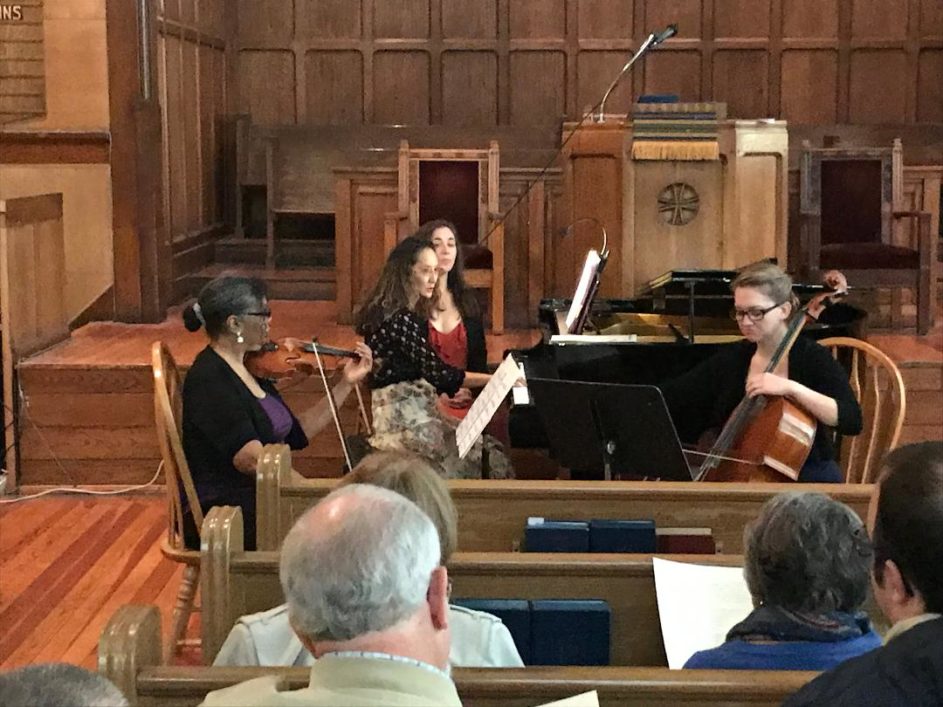One would think a piano trio that has played together only a few times and at wide intervals would present music that is easy to wrap their heads around and not take a lot of work to put together.
No so with the Kibeka Trio, which recently performed only its third concert at Fourth United Presbyterian Church.
The ensemble’s name is derived from the first two letters of the three musicians’ names: violinist Kimberly Simpkins, pianist Belle James and cellist Kathryn York. All three have private teaching studios and play as freelance musicians in area orchestras.
They were joined in this concert by flutist and violinist Margaret Moore, who is also a lecturer in the philosophy department at the University of Tennessee. All four musicians have conservatory educations.
Any trio that tackles Swiss composer Frank Martin’s scintillating 1925 “Trio on Popular Irish Folk Tunes” has to be serious about what they are doing to play the piece as well as the Kibeka played it.
The first movement, marked “Allegro moderato,” turned clearly Irish tunes upside down and backward by mixing complex time signatures, with the instruments set against each other in what comes off as phase-shifting, something that didn’t really show up in music until 50 years later in the minimalist music of Steve Reich.
It’s fundamentally a Celtic dance tune. But it goes through rhythmic changes that pick up suggestions of Irish pipe and drone, then throws them out the window.
The second movement begins with a mournful tune in the cello that could be a French chaconne. But when the piano jumps in, one can hear more than one melody pushing its way in until the textures become clear.
The third is almost stereotypically a sprightly Irish gigue with lively violin playing sprightly rhythms.
The trio began their program with the intoxicating rhythms of two Astor Piazzolla pieces: “La Muerte Del Angel” and the wonderful “Oblivion,” which is almost impossible to keep one’s body still while listening to it.
Moore and James next played American composer Aaron Copland’s last substantial composition, “Duo for Piano and Flute,” written during the period 1969-1971.
Written in memory of flutist William Kincaid, it is filled with Copland’s tendency to gather material from just about everywhere and make it his own. One could hear bits of jazz and ragtime up against medieval and Hebrew chants, pastoral descriptions, folk-tune elements and even exotic influences from Indian music. Moore and James played it superbly.
Then Moore and Simpkins played violinist and composer Mark O’Connor’s arrangement of American folk musician Jay Unger’s 1982 song, “Ashokan Farewell.”
Listening to these musicians play was both a joyful experience and an intellectually intriguing one. It’s creative minds that put pieces like this together on the same program and play all of them equally well.
To keep up with what the Kibeka Trio will do next, visit their Facebook page.

